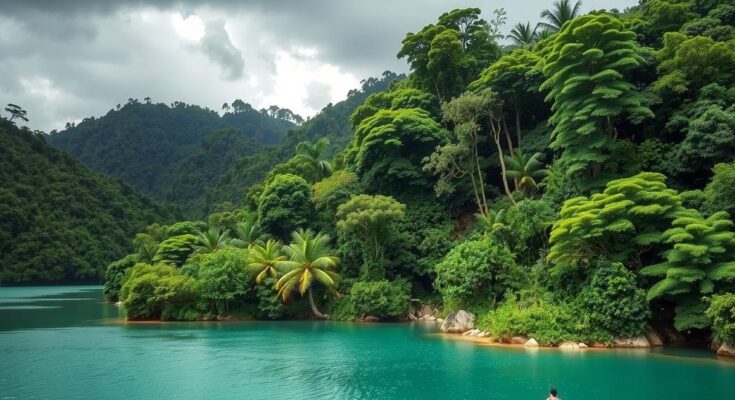Brazil’s new laws in Mato Grosso and Rondonia undermine the Amazon soy moratorium, which prohibits soy cultivation on recently deforested land. The reductions in tax incentives for compliant companies may encourage increased deforestation, contrary to efforts to protect the Amazon, a crucial resource for global climate stability. Environmental groups are urging businesses to maintain commitments to sustainable practices despite financial challenges.
Recent legislative changes in Brazil’s Amazon states of Mato Grosso and Rondonia have incited significant concern among environmental advocates. These changes weaken an existing agreement known as the Amazon soy moratorium, which prohibits the sale of soybeans cultivated on land deforested after 2008. By reducing tax incentives for compliance with this moratorium, the laws potentially encourage agribusiness expansion into previously protected areas within the Amazon, which could exacerbate deforestation rates and contribute to climate change and biodiversity loss.
Environmental organizations, including Greenpeace, the World Wildlife Fund (WWF), and the Climate Observatory, have expressed fears that these legal adjustments will incentivize further deforestation. They argue that the new laws penalize companies striving to adhere to sustainable practices, undermining collective efforts to protect the Amazon rainforest. The moratorium had previously played a pivotal role in curbing deforestation by linking economic incentives to preservation efforts, helping to diminish the impact of agricultural expansion on the forest ecosystem.
The Amazon rainforest is a vital resource for global carbon storage and weather regulation. Its degradation poses serious risks not only to the local ecosystem but also to the planet’s climate stability. The weakening of the moratorium could lead to an increase in carbon emissions and a loss of biodiversity, which are critical issues in the context of global climate change.
Environmental advocates are urging businesses to uphold the soy moratorium, asserting that financial losses should not deter companies from making environmentally responsible choices that contribute to the preservation of this essential biome. The potential consequences of these legislative changes extend beyond Brazil, affecting global environmental health.
“This means penalizing companies committed to ending deforestation, promoting the continued expansion of agribusiness in Amazon forest areas, creating subsidies for deforestation and discriminating against the granting of tax incentives based on companies’ environmental commitment.” – Manifesto by Greenpeace, WWF and Climate Observatory
In conclusion, Brazil’s recent laws threatening the Amazon soy moratorium represent a significant setback in the fight against deforestation. The potential acceleration of such activities not only jeopardizes the Amazon’s critical role in climate health but also undermines the commitment of numerous companies to sustainable practices. The ongoing debate underscores the need for robust regulatory frameworks that support environmental preservation in the face of economic pressures.
In the context of the Brazilian Amazon, the soy moratorium has been a crucial policy in the fight against deforestation. Established in 2006, this agreement has successfully reduced the purchase of soybeans grown on illegally cleared land, substantially lowering deforestation rates. The recent legislative actions to weaken the moratorium risk undoing years of progress and highlight the ongoing conflict between environmental protection and agribusiness interests in Brazil.
The legislative alterations in Brazil not only pose a threat to the Amazon rainforest but also reflect broader challenges in balancing economic growth with environmental stewardship. As international stakeholders increasingly recognize the implications of Amazon deforestation, the resolution of these conflicts will be essential for sustainable development and climate resilience globally.
Original Source: www.dailyclimate.org




